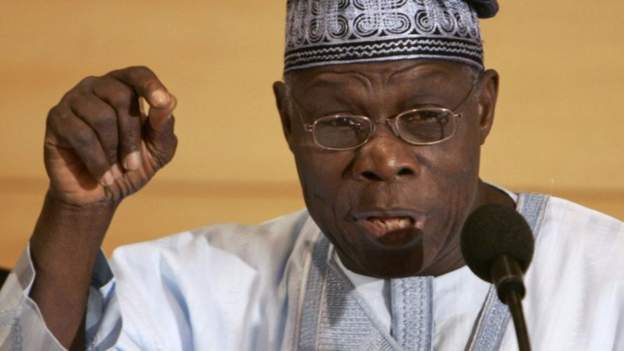African nations must flee from the subtle recolonization tactics being pursued through the “honeyed policy shackles” of the International Monetary Fund, World Bank and the United Nations dogma, according to Nigeria’s former president, Olusegun Obasanjo. Yet, he has also attributed the continent’s rising poverty and underdevelopment to poor leadership, bad governance, and massive corruption by high-powered people in government.
Speaking at the 25th Session of African Youth and Governance Convergence (AYGC) held at Mankessim, Ghana, Olusegun Obasanjo said that African nations have been pushed to leverage the African Continental Free Trade Area (AfCFTA) to free themselves from the economic restraints placed on them by colonialism, neocolonialism, and imperialism.
“The restructured socio-economic and political neocolonialism characterized by its underlining capitalism, neoliberal globalization, and cultural subjugation of Africa by the Bretton Woods institutions is a recipe for continental failure,” ex-President Obasanjo said. “Thus, if African countries continue to depend on these instruments as the launch pad for their development, the Continent will, at last, fail regardless of its endowments.”
However, Obasanjo did not only blame external forces for Africa’s misfortunes, emphasizing that poor leadership, bad governance and massive corruption by high-powered people in the government are stifling development in Africa. The leadership letdowns, he said, had occasioned the rising crass economic mismanagement of economies, diversity frictions, and political segregation, leading to loss of confidence in state institutions’ ability to provide public services. “It is unfortunate that in some countries where the gatekeeper is the thief, the countries could only be made safe and secured by God,” Nigeria’s ex-president said.
The seven-day event, which was attended by 65 delegates from 27 African countries, the United States and Canada, sought to harness the potential of the youth to become responsible and participating citizens for sustainable development.



